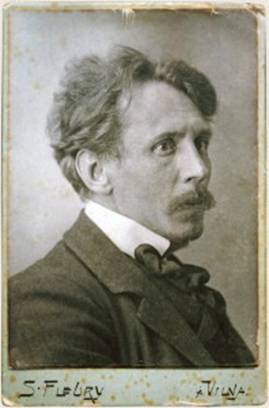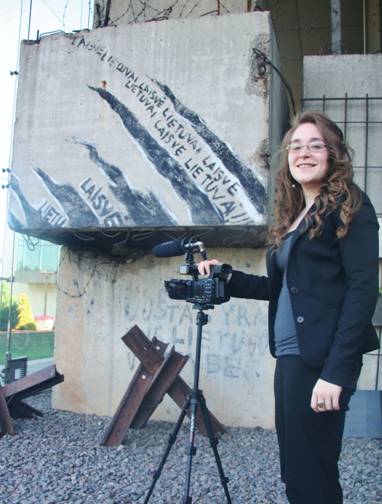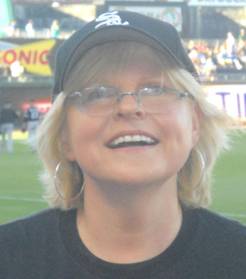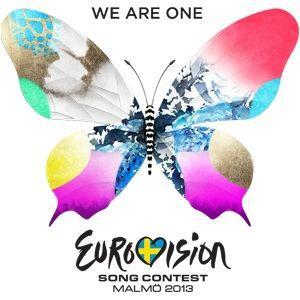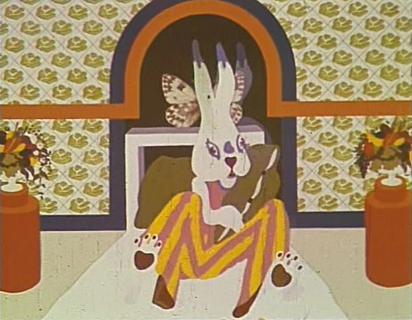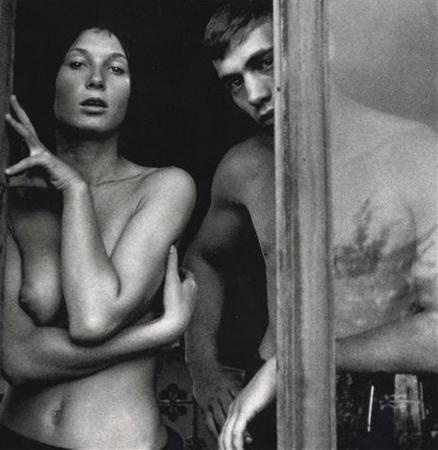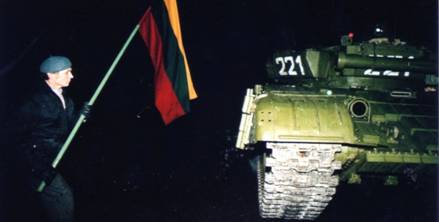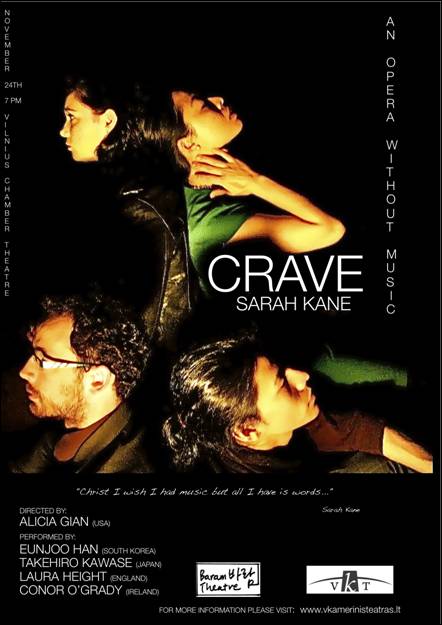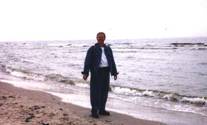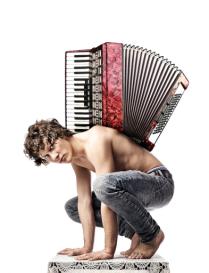
THE VOICE OF INTERNATIONAL LITHUANIA
|
VilNews has its own Google archive! Type a word in the above search box to find any article.
You can also follow us on Facebook. We have two different pages. Click to open and join.
|
Fri, 30th October, 2015 - Posted by - (2) Comment
A

By Jurate Kutkute Burns
Florida, USA
My most recent visit to Lietuva concluded on September 24th of this year. It was my fifth visit since I first saw my parents’ homeland in 1998 and I can honestly say that each time I come, my appreciation and love for this country grows. Several of my friends in Lietuva have asked me what I think of their country, or city, as they wish to compare their vista with that seen by an outsider. These are my impressions, colored in part by my own parents’ views of what Lietuva meant to them.
First, Lietuva, while geographically small, has an enormous investment in artistic and intellectual capital. Artists, musicians, poets, writers and teachers are appreciated for their talents. Vilniaus Senamiestis is truly an architectural treasure, and each year more of the decayed buildings are being refurbished. Valdovu
- Bookmark :
- Digg
- del.icio.us
- Stumbleupon
- Redit it
Fri, 30th October, 2015 - Posted by - (0) Comment
Berta upe Tilmantaite
is among the world's
top photographers

OLEG – THE HUNTER IS A MOVIE BY BERTA UPE TILMANTAITE
SEE HTTPS://VIMEO.COM/81331998
By Aage Myhre
When I spoke with Berta
Berta upe Tilmantaite is a Lithuanian multimedia journalist, photographer and story teller, currently based in Vilnius. She obtained her MA in International Multimedia Journalism from the University of Bolton / Beijing Foreign Studies University (Beijing) after graduating from Vilnius University.
Recently the Asia-Europe Foundation (ASEF) organized an international photography competition "On the Go", and Berta up Tilmantaitė won first place with her photo “On the boat”
B.Tilmantaitės winning photograph will be exhibited in Luxembourg during the 12th Asia-Europe Meeting (ASEM) Foreign Ministers 'Meeting (12th ASEM Foreign Ministers' Meeting).…
- Bookmark :
- Digg
- del.icio.us
- Stumbleupon
- Redit it
Sat, 15th June, 2013 - Posted by - (4) Comment
GameChanger
A film about Lithuania's
nonviolent resistance
By Aage Myhre
aage.myhre@VilNews.com
American-Lithuanian Rima Gungor (25) will reside in Lithuania throughout this summer to conduct a series of interviews and recordings that will crystallize in a movie planned launched to a worldwide audience in March 2014. The film bears the name GameChanger, and will shed light on Lithuania's postwar fights against occupying superpowers from the start of World War II until the final independence in the early 1990s. An important point will be Lithuanians remarkable nonviolent and successful uprising against the Soviet invaders in 1990-1991.
“Yes, the idea is to chronicle and analyze the history of resistance movements in Lithuania and show how and why they developed into the final and successful non-violent resistance movement,” she tells us.
“While at North Central College in Chicago I won a Richter grant which allowed me to research and complete a paper on Lithuania’s resistance movements. I wrote my thesis on nonviolent resistance movements and how they can be successful using Lithuania’s nonviolent movement as an example. The nonviolent resistance movement in Lithuania is one of the least recognized and least talked about freedom movements, however, it was one of the most successful in several decades.”
The film will analyze Lithuania’s freedom movements starting from the armed resistance during and after World War II, the protests during the 1960’s and 1970’s, and finally the nonviolent movement in the 1980’s and 1990’s. The goal is not only to tell Lithuania’s story, in a historical, but also personal and intimate way through interviews with participants both inside and outside of Lithuania, and to apply it to a global context to inspire other movements around the world.
- Bookmark :
- Digg
- del.icio.us
- Stumbleupon
- Redit it
Sat, 15th June, 2013 - Posted by - (5) Comment
By Daiva Markelis, Charleston, Illinois
Professor of English at Eastern Illinois University
When I was growing up, my mother was always going on about her aristocratic roots. Her great-grandfather had been a Prussian plikbajoris. Bajoris comes from the word bajoras, meaning nobleman, while plik is a shortened form of plikas, or naked. A naked nobleman was one whose wealth had dissipated, usually through fiscal mismanagement augmented by an excessive fondness for liquor.
Not to be outdone, my father would counter with the claim that his surname—Markelis—was one of a kind. “Except for my siblings, no other Markelises roam the face of earth,” he’d add, as if we were dinosaurs.
I felt doubly blessed. Having a singular last name was just as special as being the great great-granddaughter of Prussian plikbajoriai.
- Bookmark :
- Digg
- del.icio.us
- Stumbleupon
- Redit it
Mon, 20th May, 2013 - Posted by - (0) Comment
An American growing
up in SIBERIA
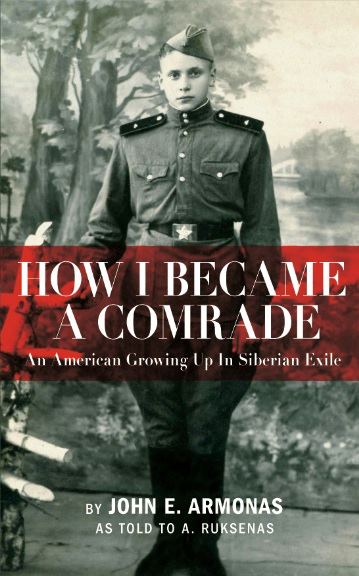
NEW BOOK: "How I Became A Comrade:
An American Growing Up In Siberian Exile" by John E. Armonas
as told to Algis Ruksenas, is NOW AVAILABLE thru Amazon.com.
An American child deported with his mother to Siberia, torn from her when she is given additional punishment at hard labor in the notorious GULAG, is raised as a Soviet in order to survive.
John Armonas was a U.S. citizen, but had been left behind when his American-born father and five-year old sister, Donna, were urged to leave Lithuania back for the United States, after the Soviets first occupied Lithuania in 1940. His mother Barbara, a native Lithuanian, was assured by American officials she could soon follow with nine-month old John, as soon as her immigration papers were expedited. Instead, they ended up in Siberia...
- Bookmark :
- Digg
- del.icio.us
- Stumbleupon
- Redit it
The strange phenomenon of Eurovision
Mon, 20th May, 2013 - Posted by - (0) Comment
Eurovision for Lithuanians is like one more religion after basketball. Everybody has their opinion on everything: how the artist should look, how they should move on the stage, what the song should be, how it should be performed. The strangest thing is that with such a big group of experts, somehow we pick the wrong person every year.
Every year lots and lots of groups and single artists fills out applications to participate in the Eurovision song competition. Every year thousands of people are watching the National Finals to vote for the best song and finally win. And every year right after the results of the National Final the weirdness begins.
- Bookmark :
- Digg
- del.icio.us
- Stumbleupon
- Redit it
Sun, 12th May, 2013 - Posted by - (0) Comment
Lithuanian genius artist
Marija T. Rožanskaitė
I attended an amazing gallery tour by Laima Kreivytė, the curator of the exhibition of Marija Teresė Rožanskaitė’s work. I had seen some works by Rožanskaitė at the National Gallery of Art earlier, and I thought that she was among the most interesting Lithuanian artists of all times, but the current exhibition gives a full picture of her genius. Rožanskaitė (1933-2007) started her career under Soviet censorship, when artistic expression was carefully monitored and abstract art was treated unfavorably. However, her ‘progressive’ topics (modern medicine, space exploration and industrial cities) allowed her to get through the censorship. However, being a child of political prisoners and a progressive artist, she was largely ignored in the USSR. When Lithuania became independent, the artist continued producing innovative art, creating spatial assemblages and installations, addressing ecological and political topics, adored by the young generation. And yet I never studied about her work at art history lessons, and I heard nothing about her death in 2007 from the mainstream press. It’s a typical way to treat women artists.
- Bookmark :
- Digg
- del.icio.us
- Stumbleupon
- Redit it
Tue, 23rd April, 2013 - Posted by - (0) Comment
The land I lead you to
is Lithuania

SMALL IS THIS LAND,
But great is its truths. To be. To survive. To testify by itself to the abundance and variety of the world’s nations, to the value of man’s life in freedom in his homeland.
PAINFUL IS THIS LAND,
Each blade of grass here sprouts from a drop of blood or a tear.
TOILFUL IS THIS LAND,
In the sandy soil of a hillock it grows both grain and graves marked with crosses.
BRAVE IS THIS LAND,
It went from uprising to uprising, from exile to exile, from deportation to deportation. A great number of its people were laid to rest in the permafrost of Siberia, some of their bones were flown back to their native soil, the survivors lost their health in slave labour, but returned home.
BEAUTIFUL IS THIS LAND,
Over each hillock, over each forest and over each lake it looks the same and different. It is just like our folk song: Though over the Nemunas river it seems to be sung in a different manner, it is nevertheless filled with the same longing and poignant emotion.
Justinas Marcinkevičius
- Bookmark :
- Digg
- del.icio.us
- Stumbleupon
- Redit it
Tue, 23rd April, 2013 - Posted by - (1) Comment
Justinas Marcinkevičius
(1930-2011)
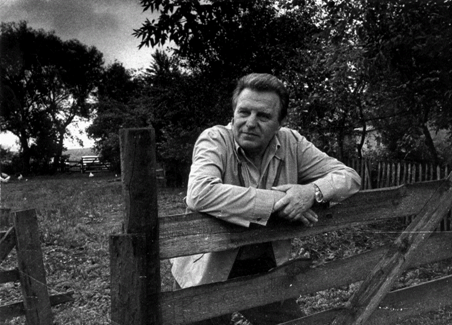
Justin Marcinkevičius Važatkiemio in his native village in 1986.
Photo: Romuald Rakausko.
Marcinkevičius was born in 1930 in Važatkiemis, Prienai district. In 1954 he graduated from Vilnius University History and Philology faculty with a degree in Lithuanian language and Literature. He joined the Communist party in 1957. He worked for a number of years as vice-chairman of the board of the official Union of Lithuanian Writers. He died in Vilnius on the 16th of February 2011.
Having grown up during the post-war period, Marcinkevičius evokes in his poetry a romanticized version of childhood spent in the Lithuanian countryside, of first love, of man's relationship with nature. In his poetry specific and solid peasant thinking is combined with a mind seeking to draw broad general conclusions, and the tradition of Lithuanian poetry singing the Earth's praises with contemporary modes of poetic thought. As a poet, he has sought to grasp the essence of national experience and give it fresh artistic expression. In his lyrical verse Marcinkevičius strives to comprehend the real meaning of what is going on inside man and society and moves the reader with his ardent lyrical confessions.
For most his life Justinas Marcinkevičius lived and wrote during the complex times of Soviet totalitarianism. He defended the cultural self-awareness of his nation. The poet brought back humanistic idea in describing a man, continued on the romantic and lyric poetry tradition, valued the aesthetic side of literature, as opposed to the heroic and propagandistic style of socialist realism. Marcinkevičius wrote poems in a romantic and modern style. Justinas Marcinkevičius is regarded as one of the most prominent members of Sąjūdis.…
- Bookmark :
- Digg
- del.icio.us
- Stumbleupon
- Redit it
Sat, 20th April, 2013 - Posted by - (0) Comment
Rescuing a Photo Prince
From Obscurity
By JULIE TURKEWITZ, NEW YORK TIMES
Tanya Aldag slips into a closet-size room in her home in suburban Maryland. The door clicks shut. Here, surrounded by thousands of black and white prints, she goes tumbling back to Soviet-era Lithuania.
“It’s like you’re going deep into the water,” she said. “It can be hard to go there.”
Ms. Aldag, 64, is the widow of Vitas Luckus, once a prince — perhaps even a king — of the Soviet photography scene. From the 1960s to the mid-1980s, he traveled throughout the Soviet bloc, capturing peasants, performers, partiers and policemen, as well as a generation of grippingly attractive young artists. He scurried across sloping rooftops (Slide 15), camera swinging from his neck. He worked obsessively, with little care for what others thought. The secret police were a constant presence in his life, burgling his home and beating him in bathrooms and cafes.
- Bookmark :
- Digg
- del.icio.us
- Stumbleupon
- Redit it
Wed, 27th March, 2013 - Posted by - (6) Comment
Making Bullets:
Take One California Girl
add a Lithuanian Revolution
and Stir
The true story of Daiva Venckus, a young American’s journey to her ancestral homeland during the collapse of the Soviet Empire.
- Bookmark :
- Digg
- del.icio.us
- Stumbleupon
- Redit it
Tue, 12th February, 2013 - Posted by - (2) Comment
Clara Nathanson
I have a collection of works by Clara Nathanson. I was wondering if you could include them in your web site. Photographed by Brennan O'Brien.
Clara (Nathanson) Sachar was born 1/1/1887 in Lituva, Lithuania, and died 1/23/1968 in St. Louis, MO. She married Charles R. Sachar on 8/18/1914 in St. Louis ...
Patrick Weil Bertrand
- Bookmark :
- Digg
- del.icio.us
- Stumbleupon
- Redit it
Fri, 8th February, 2013 - Posted by - (1) Comment
Why this perpetual
return to Lithuania?
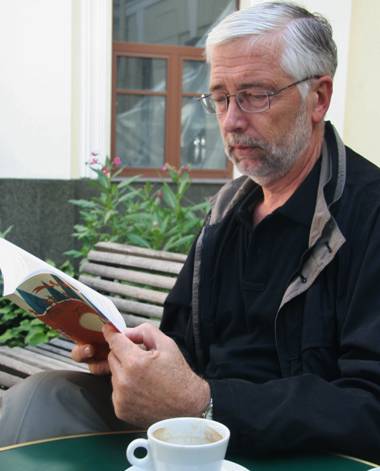
Novelist Antanas Sileika on the Traku - Pylimo street corner
in Vilnius – with his book Underground.
Photo Aage Myhre
Standing on the corner
of Traku and Pylimo
A writer muses about the foreign sources for
his work and what it means to be a Canadian
By Antanas Sileika, novelist
For the fourth year in a row I’m standing at the crossroads of Pylimo and Traku Streets in Vilnius, Lithuania, worrying the place, trying to sift the stories that lie like dust between the cobblestones. I’m slightly sick of this baroque, labyrinthine city - the strangulated cries of the swallows at dusk make me think of the dead souls of forgotten citizens.
Nobody who lives in Vilnius now had great grandparents who lived here - most of the old inhabitants were killed during the war or shipped out after it. Vilnius is old, but the people who inhabit it are relatively new to this city.
They came here after the war, around the time I was born to immigrant parents in Toronto. Although I’ve spent my whole life in Canada, my clan, my people are new to it, and I’m not entirely comfortable in the country of my birth. I keep coming back to this melancholy city of Vilnius, mulling over the past and trying to determine the geography of my belonging.
- Bookmark :
- Digg
- del.icio.us
- Stumbleupon
- Redit it
Fri, 8th February, 2013 - Posted by - (1) Comment
A poem about the
witches among us
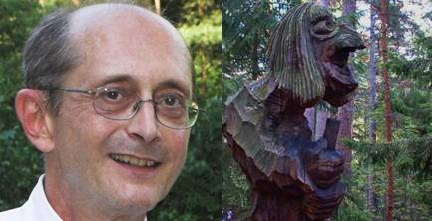
Lent is imminent, and writer KR Slade wants to remind us of what it
represented in pagan Lithuania. In his poem "My Dream of When the
Witch is Found ..." he deals with today's witches and devils in Lithuania,
the many who are still engaging in anti-Semitism and racism.
By KR Slade
This year, Lent begins on 13 February (i.e., Ash Wednesday). Therefore, 12 February is ‘Shrove Tuesday’:which in Lithuania is called ‘Užgavėnės’ (i.e., “time before lent”) … that is an ancient pagan-festival -- “to chase away winter” -- and: celebrated by fire, and the wearing of masks -- notably representing witches and devils.
Such ancient witches/devils mask-representations, and their symbolism: are more-recently found in the first-half of the 20th century (i.e., in anti-Semitic Nazi, fascist, Soviet, et als. propaganda). Indeed, some people consider such past and current representation(s) to be anti-Semitic.
Moreover, I have found in Lithuania a degree of anti-Semitism that I did not find in the USA LT community; indeed, I find such anti-Semitism here in LT in my own family (here), and with my LT friends, colleagues and associates . . . I find the devil/witch concept still with us, in LT . . .
That is why I wrote this poem; “My dream of when the witch is found.”
- Bookmark :
- Digg
- del.icio.us
- Stumbleupon
- Redit it
Wed, 21st November, 2012 - Posted by - (0) Comment
Crave:
An opera without music
A chamber opera for four voices at Vilnius Chamber Theatre
Saturday 24 November at 19:00
- Bookmark :
- Digg
- del.icio.us
- Stumbleupon
- Redit it
Let’s introduce you to Lithuania’s favourite interwar tenor
Mon, 24th September, 2012 - Posted by - (0) Comment
Let's introduce you to Antanas Šabaniauskas (1903–1987), considered to be the most sought-after artist of the little stage in interwar Lithuania. His intensive professional career lasted for six decades. Huge number of copies of his records was circulating throughout Lithuania. Šabaniauskas sang with Moishe Hofmekler’s orchestra and Alfonsas Mikulskis’ vocal male octet. He took part in musical programmes in Metropolis and Versalis restaurants, sang in the State Theatre Opera choir, appeared in minor tenor roles. His voice was also heard in radio broadcasts as well as in concerts around Lithuania. His success inspired Lithuanian composers Kajetonas Leipus, Emerikas and Stasys Gailevičiai, Juozas Bankas, N. Naikauskas, Juozas Pakalnis, Jurgis Karnavičius, Leonardas Lechavičius and Pranas Juodka to compose for the little stage. Šabaniauskas performed foreign schlagers almost exclusively in Lithuanian. He recorded 64 works (32 LPs) in London (Columbia) and Copenhagen (His Master’s Voice).
To read and listen more, go to
http://www.youtube.com/playlist?list=PLE91DEB0ECDE727FB
- Bookmark :
- Digg
- del.icio.us
- Stumbleupon
- Redit it
VilNews e-magazine is published in Vilnius, Lithuania. Editor-in-Chief: Mr. Aage Myhre. Inquires to the editors: editor@VilNews.com.
Code of Ethics: See Section 2 – about VilNews. VilNews is not responsible for content on external links/web pages.
HOW TO ADVERTISE IN VILNEWS.
All content is copyrighted © 2011. UAB ‘VilNews’.

 Click on the buttons to open and read each of VilNews' 18 sub-sections
Click on the buttons to open and read each of VilNews' 18 sub-sections 

